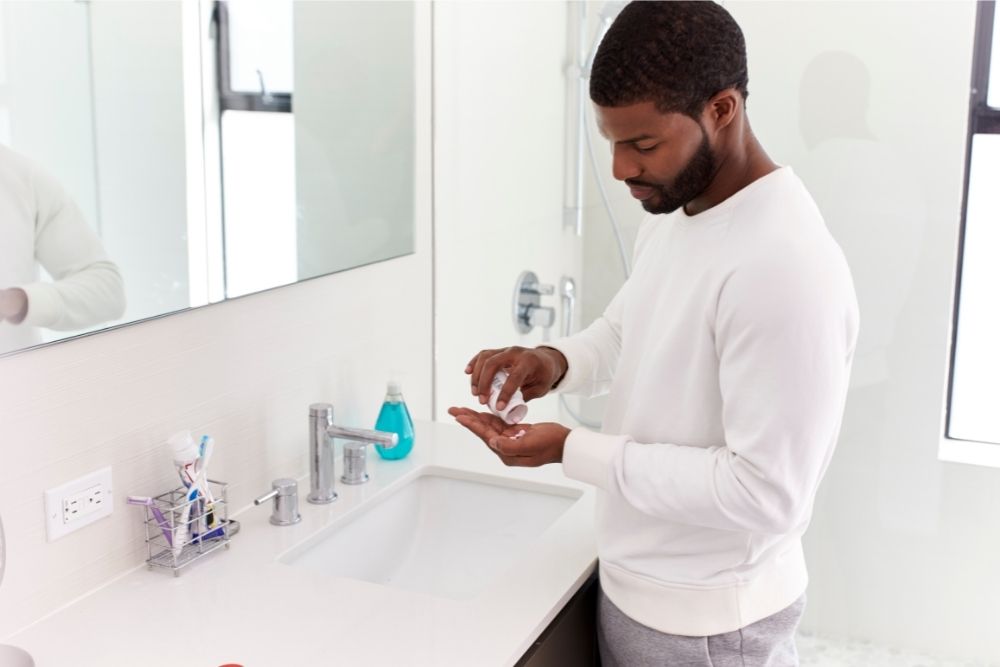Iron deficiency, according to some, is the most common deficiency in the Western world, especially amongst young women. However, there is less information and talk about men and the use of iron supplements. Do men need to take iron supplements? How much iron do men need and are there potential risks of too much iron for men - all discussed below.
How much iron do men need?
While women require approximately 18 milligrams per day, men only require 10 milligrams per day. This difference in daily requirements stems primarily from the fact that women lose iron during their menstrual cycle every month. Hence, the recommendation that women after menopause be very careful about supplementing with additional iron supplements - but do men need to be as weary?
Once adequate hemoglobin levels are reached and iron stores are saturated, any excess iron remains unattached and ionized. This ionized iron, unfortunately, is an extremely potent catalyst for free radicals, which are a major cause of degenerative diseases. Also, the excess iron will displace chromium in the blood as they are bound to the same blood protein. This means chromium will also be lost due to the ionized iron. Deficiency in chromium can lead to adult onset diabetes - so excess iron has profoundly negative effects on our health, which can cause degenerative diseases and even diabetes (1).
This doesn’t mean you should fear iron or worry over it. It just means you may not need any extra. You should not take an iron supplement unless you have reason to believe you are deficient through an adequate testing method - a symptomatology list is provided in this blog.
How to know if I need to take an iron supplement?
This is the best question to ask when considering taking an iron supplement. Too little iron and you will lack hemoglobin, which carries oxygen in the blood. The resulting anemia reduces the body’s ability to perform work - which brings about the recognizable fatigue commonly associated with anemia. But aside from feeling tired, there are 9 other symptoms that can indicate iron insufficiency.
- Anemia
- Concave nails (spoon shaped)
- Lightheadedness or dizziness
- Chronic headaches
- Pale skin
- Brittle nails
- Constipation
- Vertical ridges on nails
- Craving ice water or chewing ice
- Fatigue
This easy to use symptomalogical assessment will give you a great start for determining your iron status. This also allows you to become familiar with the clinically documented signs and symptoms of iron deficiency - giving you a better sense of awareness when it comes to your body and its iron content. This is what men can use to determine if they need iron at any given time. If you do need iron, you can either increase your iron intake through iron-rich foods, or take an iron supplement.
Which Foods are High in Iron?
If you use iron utensils and cookware your food will naturally be rich in iron. However, naturally rich iron foods are:
- Alfalfa
- Apricots
- Beets
- Brewers yeast
- Molasses
- Peaches
- Prunes
- Raisins
- Spinach
*Drinking tea and coffee will interfere with iron absorption and also low stomach acid will cause a drop in iron absorption, making you more prone to anemia.
Best Iron Supplements
It is extremely important to ensure you are purchasing a naturally bound organic form of iron. Now, this isn't organic in the sense that it was grown organically like groceries, but rather contains a carbon atom (as all living things contain carbon). Inorganic forms of iron, which are contained in iron enriched or iron fortified foods and cheap supplements - this form of iron is hard on the digestive system and actually destroys Vitamin E.
Best type of iron to purchase is ferrous fumarate. Unlike inorganic forms of iron, ferrous fumarate passes easily through the intestinal walls and does not cause constipation(2).
*Vitamin C aids in the absorption of iron, so if you are deficient taking an organic iron supplement that contains Vitamin C is ideal.
It’s important to understand that we all need iron to survive, it plays a vital role in the body, however too much can be harmful. Understand the signs of deficiency and use organic forms of iron supplements if you are experiencing low iron levels. The best form of iron always comes from nature.
- Price Todd, G. M.D. Nutrition Health and Disease
- Rowland, D. Ph.D. Food-Based Medicines

